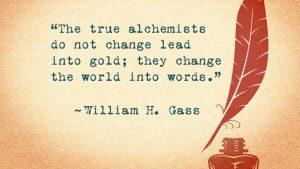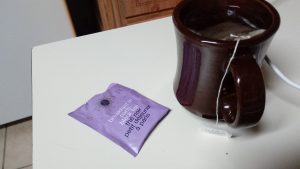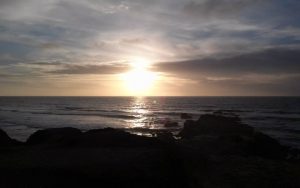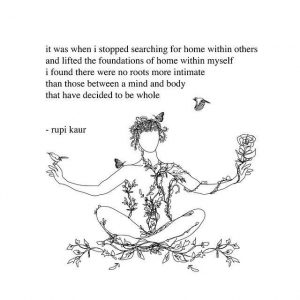Marshall Rosenberg said, “Talk to the people in language they understand.” I bear this principle in mind when I strive to communicate. I understand that people use words in certain ways; that they hear words in certain ways; that they react to words in certain ways.
I played Helen Keller in a high school production. We enacted the scene at the dinner table when Helen behaves like a wild creature, going from plate to plate grabbing food. At one point she dumps a water pitcher. Her teacher Anne Sullivan grabs her hand and drags her to the pump to re-fill it, signing the word for “water” as she insists that the child work the lever. Eventually, Helen connects the sign, “Water“, with the sound that Miss Sullivan articulates — “Water”, and thus with the cold, marvelous sensation on her hands as the old pump engages.
Waaa — tttter, she says, stuttering, groping for the sounds, assembling them in a flash of understanding.
In another scene, Helen’s father and Annie speak of the need for her to learn:
Keller. And what would another week accomplish? We are more than satisfied, you’ve done more than we ever thought possible, taught her constructive——
Annie. I can’t promise anything. All I can——
Keller (no break).——things to do, to behave like—even look like—a human child, so manageable, contented, cleaner, more——
Annie (withering). Cleaner.
Keller. Well. We say cleanliness is next to godliness, Miss——
Annie. Cleanliness is next to nothing. She has to learn that everything has its name! That words can be her eyes, to everything in the world outside her, and inside too. What is she without words? With them she can think, have ideas, be reached. There’s not a thought or fact in the world that can’t be hers. You publish a newspaper, Captain Keller, do I have to tell you what words are? And she has them already——
Keller. Miss Sullivan.
Annie. ——eighteen nouns and three verbs, they’re in her fingers now, I need only time to push one of them into her mind! One, and everything under the sun will follow. Don’t you see what she’s learned here is only clearing the way for that? I can’t risk her unlearning it, give me more time alone with her, another week to——”
(From, ‘The Miracle Worker’, William Gibson, adapted 1957)
Words — the collection of them, what we call ‘language’, become vehicles with which we endeavor to convey what we think, feel, want, dream. Sometimes I have only words to offer. I have nothing else to give. I search for each syllable and hold them out with all the hope and tenderness that I can summon from my distended belly.
My father taught me to read and write at three because he did not expect me to walk. He put me on his lap in front of a manual typewriter and guided my hands to the letters. He traced the sentences in the evening paper and encouraged me to follow. He found the gift lying within me, and drew it to the surface. I live there, now; on the edge of disclosure. I cannot stop the flow. It brings me pain at times. I might as well tear open my dress and lay my chest bare in anticipation of the knife. And yet, I choose to do it. My words do not merely arise from my soul. They are my soul. I tender them. I take my chance.
It’s the twelfth day of the forty-seventh month of My Year Without Complaining. Life continues.
s








